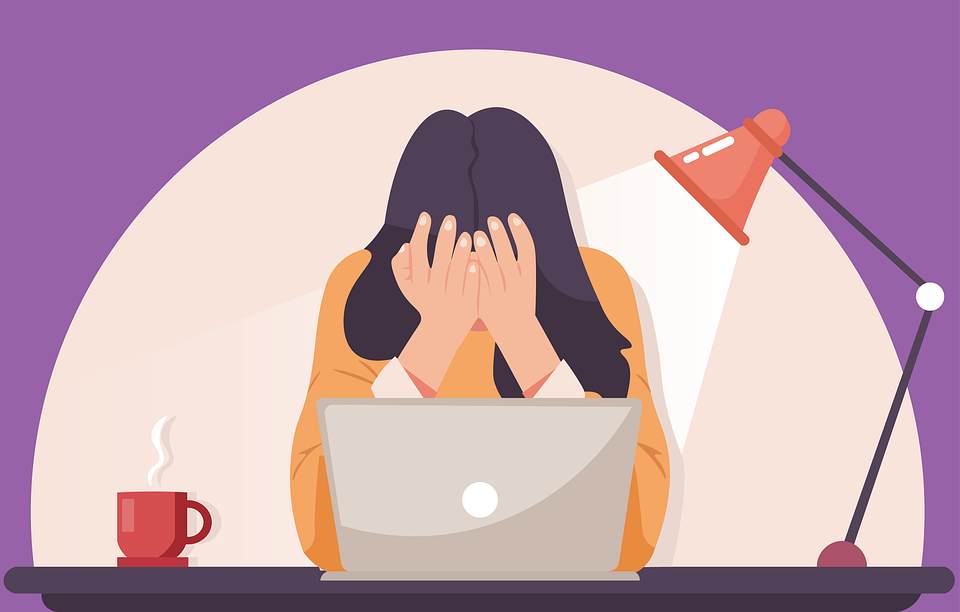
How To Deal With Stress At Home & In Work
What is Stress
Understanding Stress: The Invisible Burden
Introduction: Stress has become an all too familiar companion. It affects individuals of all ages, occupations, and walks of life. Yet, despite its prevalence, stress remains a complex and often misunderstood phenomenon.
Defining Stress: Stress can be defined as a physiological and psychological response to external pressures, challenges, or adverse circumstances. It is the body’s natural reaction to a perceived threat or demand, triggering the “fight-or-flight” response. While stress is a normal part of life and can be beneficial in certain situations, prolonged or excessive stress can have detrimental effects on our physical and mental well-being.
Causes of Stress: Stress can arise from various sources, known as stressors. These stressors can be external, such as work-related pressures, financial difficulties, relationship problems, or major life events like moving or loss of a loved one. Internal stressors can include self-imposed expectations, perfectionism, negative self-talk, or unresolved emotional issues. Each person may experience and respond to stress differently, as what may be stressful for one individual may not be for another.
Effects of Stress: When stress becomes chronic or overwhelming, it can lead to a range of physical, emotional, and cognitive symptoms. Physically, stress can manifest as headaches, fatigue, digestive problems, muscle tension, weakened immune system, and even cardiovascular issues. Emotionally, it can result in anxiety, irritability, mood swings, depression, and a decreased sense of well-being. Additionally, stress can impair cognitive abilities, including memory, concentration, and decision-making skills.
Managing Stress: Recognizing and managing stress is essential for maintaining a healthy and balanced life. Here are some strategies to effectively cope with stress:
- Identify and address stressors: Reflect on the factors contributing to your stress and take proactive steps to manage or eliminate them. This may involve setting boundaries, seeking support, or making lifestyle changes.
- Practice relaxation techniques: Engage in activities that promote relaxation and reduce stress levels. These can include deep breathing exercises, meditation, yoga, or spending time in nature.
- Maintain a healthy lifestyle: Nurturing your physical health can have a positive impact on stress management. Regular exercise, balanced nutrition, adequate sleep, and avoiding harmful habits like excessive alcohol or substance use can all contribute to resilience against stress.
- Cultivate a support system: Seek support from family, friends, or professionals when needed. Sharing your concerns and feelings with trusted individuals can provide perspective, guidance, and emotional support.
- Time management and prioritization: Organize your tasks and responsibilities, setting realistic goals and timelines. Prioritize what is important and learn to delegate or say no when necessary.
- Positive coping mechanisms: Engage in activities that bring you joy, such as hobbies, creative outlets, or spending time with loved ones. Engaging in pleasurable experiences can help alleviate stress and promote a sense of well-being.
How To Deal With Stress At Home
How to Deal With Stress at Home: Effective Strategies for a Peaceful Mind
Stress is an inevitable part of life, and its impact can be particularly profound when experienced within the confines of our homes. Whether it stems from work pressure, family responsibilities, or other external factors, managing stress at home is essential for our overall well-being. By adopting effective strategies, we can create a harmonious environment that promotes relaxation, productivity, and peace of mind.
- Establish a Daily Routine: One of the key elements in managing stress at home is establishing a structured daily routine. Creating a schedule helps bring a sense of order and predictability to your day, reducing feelings of overwhelm. Set aside dedicated time for work, rest, leisure activities, exercise, and personal time. Ensure you allocate sufficient breaks to unwind and rejuvenate throughout the day.
- Create a Calm Environment: Your physical surroundings can significantly impact your stress levels. Take the time to declutter and organize your living space, as a clutter-free environment promotes clarity and reduces anxiety. Incorporate elements that contribute to relaxation, such as soft lighting, soothing colors, and pleasant scents. Personalize your space with items that bring you joy and comfort.
- Practice Mindfulness and Meditation: Engaging in mindfulness and meditation practices is an effective way to reduce stress and cultivate a calmer mindset. Set aside a few minutes each day to practice deep breathing exercises, mindfulness meditation, or guided relaxation techniques. These practices promote self-awareness, focus, and a sense of inner peace, enabling you to better manage stress triggers.
- Maintain a Healthy Lifestyle: A healthy lifestyle plays a crucial role in managing stress. Ensure you prioritize regular exercise, as physical activity releases endorphins, which act as natural stress relievers. Engage in activities you enjoy, such as yoga, walking, or dancing. Additionally, maintain a well-balanced diet, emphasizing whole foods, fruits, vegetables, and lean proteins. Proper hydration and sufficient sleep are also essential for managing stress effectively.
- Establish Boundaries: Setting clear boundaries is crucial for managing stress at home, particularly when it comes to work-life balance. Establish designated spaces for work and relaxation to maintain a separation between professional and personal life. Communicate your boundaries with family members or roommates to ensure uninterrupted time for rest and personal activities. Learning to say “no” when you feel overwhelmed is also vital in maintaining a healthy balance.
- Cultivate Supportive Relationships: Nurturing healthy and supportive relationships is fundamental to managing stress. Engage in open and honest communication with your loved ones, sharing your feelings and concerns. Seek social support when needed, whether it’s through family, friends, or online communities. Connecting with others who share similar experiences can provide valuable insights and emotional support.
- Engage in Relaxation Techniques: Experiment with various relaxation techniques to find what works best for you. This may include listening to calming music, practicing deep breathing exercises, taking a warm bath, or engaging in a hobby that brings you joy and helps you unwind. Engaging in activities that promote relaxation on a regular basis can significantly reduce stress levels and increase overall well-being.
How To Deal With Stress At Work
Mastering the Art of Handling Work-Related Stress
Work-related stress, in particular, can significantly impact our overall well-being and productivity. Learning how to effectively deal with stress at work is crucial to maintaining a healthy work-life balance and achieving professional success.
- Recognize the Signs of Stress: The first step in dealing with work-related stress is to recognize its signs and symptoms. These may include increased irritability, fatigue, difficulty concentrating, sleep disturbances, and physical ailments like headaches or stomachaches. Being aware of these signs allows you to identify stress triggers and take timely action.
- Identify and Prioritize: Overwhelming workloads and unrealistic deadlines can contribute to stress. To tackle this, create a to-do list and prioritize tasks based on their urgency and importance. Breaking down large projects into smaller, manageable tasks can make them less daunting. Learn to delegate tasks whenever possible and seek support from colleagues or superiors.
- Establish Boundaries: In today’s hyper-connected world, it’s essential to establish boundaries between work and personal life. Set specific work hours and stick to them as much as possible. Avoid bringing work-related stress home by engaging in activities that promote relaxation and self-care. Prioritize hobbies, exercise regularly, spend time with loved ones, and practice mindfulness or meditation techniques to help unwind.
- Improve Time Management: Inefficient time management often leads to increased stress. Learn to effectively manage your time by planning ahead and setting realistic deadlines. Break larger tasks into smaller, manageable chunks and allocate specific time slots for each task. Avoid multitasking as it can be counterproductive and overwhelming. Instead, focus on one task at a time, completing it before moving on to the next.
- Communicate and Seek Support: Maintaining open lines of communication with colleagues and supervisors is vital when dealing with work-related stress. Express your concerns or challenges to them and seek their guidance or assistance. Sharing your workload or discussing any issues you face can alleviate the burden and help you gain a fresh perspective on problem-solving.
- Practice Stress-Relief Techniques: Incorporate stress-relief techniques into your daily routine to manage workplace stress effectively. Deep breathing exercises, regular physical activity, and progressive muscle relaxation techniques can help reduce tension and promote relaxation. Take short breaks during the workday to stretch, walk, or engage in activities that bring you joy and recharge your energy.
- Foster a Positive Work Environment: Creating a supportive and positive work environment is essential in minimizing stress levels. Foster healthy relationships with colleagues by promoting open communication, collaboration, and teamwork. Engage in small acts of kindness and appreciation, which can significantly boost morale and reduce stress levels for everyone involved.
- Seek Professional Help: If work-related stress becomes overwhelming and persistent, consider seeking professional help. Consult with a mental health professional who can provide guidance, coping strategies, and support tailored to your specific needs. Don’t hesitate to reach out when you feel that your mental well-being is compromised.
Conclusion
Stress is an inevitable part of life, but it is crucial to managing it effectively to prevent it from overwhelming our physical and mental health. By understanding the causes, effects, and strategies for stress management, we can equip ourselves with the tools needed to navigate life’s challenges with resilience and maintain a healthier and happier existence. Remember, seeking support and implementing self-care practices are vital steps towards a balanced and stress-free life.
Managing stress at home is a critical aspect of maintaining a healthy and balanced lifestyle. By adopting these strategies, you can create a calm and peaceful environment that supports your well-being. Remember to establish a daily routine, cultivate a calm environment, practice mindfulness and meditation, maintain a healthy lifestyle, set boundaries, nurture supportive relationships, and engage in relaxation techniques. By incorporating these practices into your daily life, you can effectively deal with stress and create a more harmonious home environment.
Work-related stress is a common challenge faced by many individuals. By implementing the strategies mentioned above, you can effectively manage stress at work and enhance your overall well-being. Remember, managing stress is a continuous process that requires self-awareness, practice, and a commitment to maintaining a healthy work-life balance. By taking proactive steps, you can create a more productive and fulfilling work environment for yourself and those around you.
For me personally, I take time out if things get overwhelming. I knock what I am working on, on the head ready for another day. I also take baby steps and tackle one task at a time in bite-size portions. If things get too much I will focus on something different and set goals so that the task in question is not left on the back burner forever.
I also have an online health journal where I vent and release all my frustrations. Knowing I have shared my despair with the world gives me a sense of relief that I am not just keeping my anxiety and stress to myself and am hopefully inspiring someone to engage in self-help therapy.
I do not smoke, drink alcohol or take drugs. I always find something to keep myself occupied, whether that is reading a book or watching a film. I stay away from negativity and do not watch the news especially what is going on in the world i.e. Ukraine. I stay away from toxic people and do not share anything personal about myself other than my health and what I want the world to know. I am 100% business-focused and care about my business just like it was my child.
Treat your mind and body like a temple.
Cymru Marketing Journal (CMJUK) works in partnership with Disabled Entrepreneur – Disability UK, where it has categories for stress, anxiety, burnout, and mental health, including men’s mental health.













